Viv Richards, Learie Constantine & Wes Hall: West Indies cricketers who charmed Lancashire
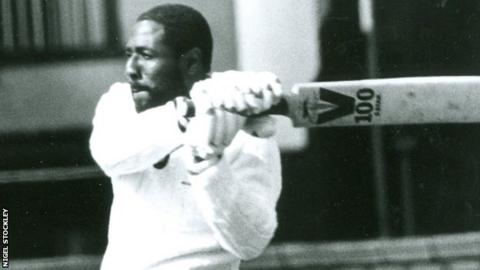
Viv Richards captained the West Indies in 50 Tests
"I was the fly in the coconut ice cream - very, very noticeable."
Throughout the 20th century West Indies' greatest cricketers dazzled on the humble club grounds of Lancashire.
Names like Viv Richards, Learie Constantine and Wes Hall are all etched onto the honours boards of the north west and they feature in a BBC documentary - Race and Pace - which is now available on iPlayer.
But their tales are about much more than cricket.
They are about race, fame, lifelong friendships, and unlikely accounts of when superstar cricketers from the other side of the world dropped into little Lancashire towns - and were taken to people's hearts.
Here are the stories of how the biggest black cricket stars in the world charmed the small white towns of Lancashire.
'Being first, I carried a burden' - the 1930s
The 14 teams in the Lancashire League were made up of 10 amateurs and one professional. Until 1928 the professional had always been white.
That year Nelson, a club heavily in debt, took a risk on Trinidadian Learie Constantine.
At £800 a season, he was thought to be the best-paid sportsman in the country.
"Schoolchildren were peeping through the window to see him," Nelson fan Edna Hartley said. "They were all lining up to see him because they had never seen a black man.
"They even came from Yorkshire to watch!"
Constantine's daughter Gloria Valere said: "People used to pass on the other side of the road when they saw him coming.
"He broke the barriers. They had been fed the idea black people were not really people, that they were less and were not very bright."
But in time perceptions changed, helped by Constantine's performances on the pitch.
Crowds of 7,000 flocked to watch the all-rounder play - an attendance which has never been matched. He led Nelson to seven titles in nine seasons and once took all 10 wickets in an innings for just 10 runs.
Constantine lived in the town for 19 years. He became a barrister, a knight and then Britain's first black peer - Baron Constantine of Nelson.
"I must admit that being the first coloured professional cricketer who had come to the Lancashire League, I had a job to do to satisfy people that I was as human as they were," Constantine said in 1966.

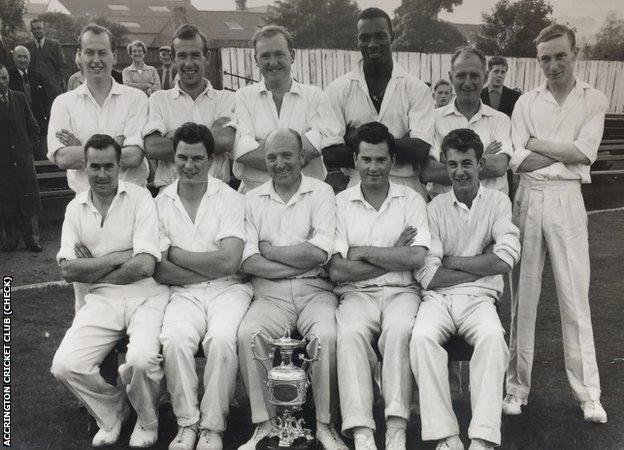 Wes Hall took 329 wickets in his three seasons at Accrington and won the league title in 1961
Wes Hall took 329 wickets in his three seasons at Accrington and won the league title in 1961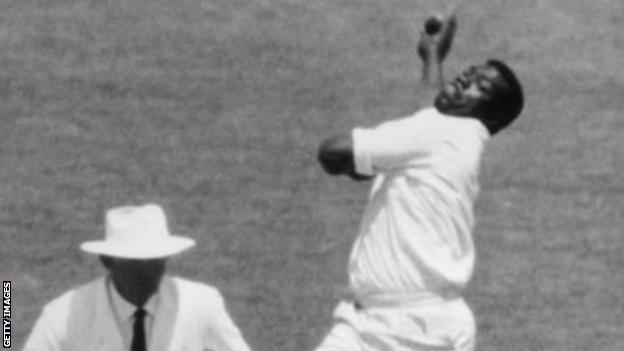 Charlie Griffith was one of cricket's most feared fast bowlers and took 94 wickets in 28 Test matches for West Indies
Charlie Griffith was one of cricket's most feared fast bowlers and took 94 wickets in 28 Test matches for West Indies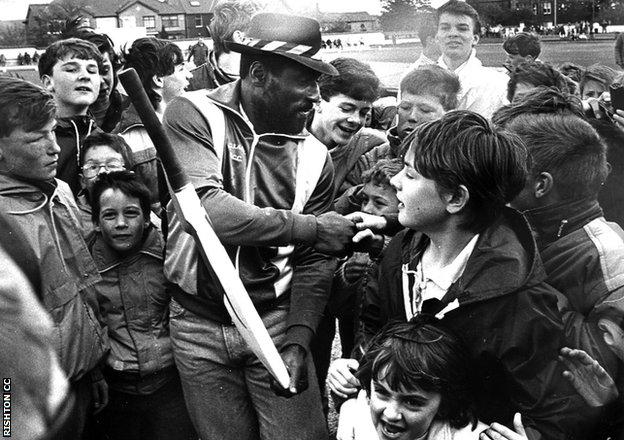 Ever the showman, Viv Richards arrives at Rishton Cricket Club in style
Ever the showman, Viv Richards arrives at Rishton Cricket Club in style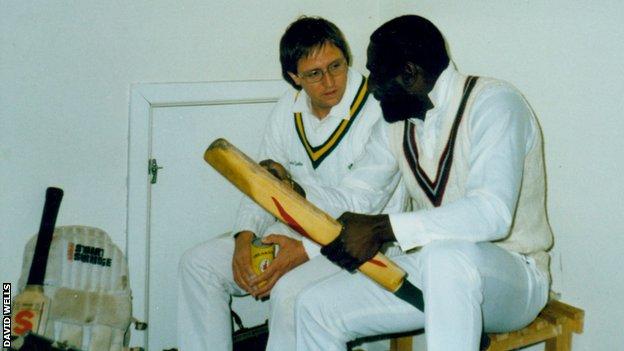 Viv Richards (right) said he "just clicked" with the his team-mates in the Rishton dressing room, including with captain David Wells (left)
Viv Richards (right) said he "just clicked" with the his team-mates in the Rishton dressing room, including with captain David Wells (left)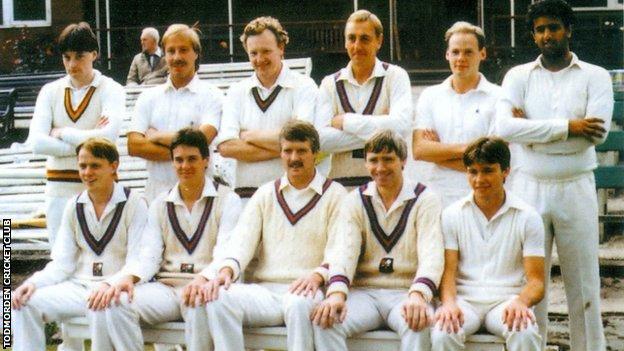 Ibrar Ali (back, right) says he was "made very welcome" when he joined Todmorden CC
Ibrar Ali (back, right) says he was "made very welcome" when he joined Todmorden CC